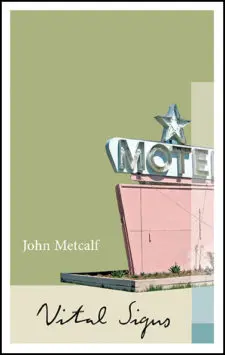Description
Norman Levine was a permanent outsider, by temperament and by choice—as Polish born immigrant, as resident alien, as writer, as Jew—and he observed life from the margins with an unsentimental eye. Raised in Ottawa after immigrating, Levine served in the Royal Air Force during the Second World war. He then lived an itinerant life for a time before settling down in the community of St. Ives in England, becoming close friends with painters such as Francis Bacon and Patrick Heron. Impressed by the emotional immediacy of their abstract work, he tried to do the same in his writing, with his words aimed to sear his readers’ nervous systems. In the process Levine developed the minimalist style, using a lean, fragmentary, suggestive language which served to heighten the emotional charges laden in his work, for which he became so rightly celebrated and emulated by other writers.
Gathered together at last in a single volume, the stories in I Don’t Want to Know Anyone Too Well present the best work of one of the great English prose stylists of the last half of the twentieth century. These stories evince a vivid texture and sensibility and are elegaic in their exploration of alienation, impermanence and the fragility of human hopes, while forcing the reader through his imagistic approach into a new and uneasy relationship with language and, through it, life.
Praise for Norman Levine
“If Levine lacks for a Canadian readership, it could be in part because there is no definitive, breakout collection of his stories…that might change with I Don’t Want to Know Anyone Too Well. … If great writing has a mark, surely this is it.” —André Forget, The Walrus
“emblematic of our national literature … [his] protagonists are forever curious about another class, another generation, another place or culture; about alternative choices that might have resulted in different outcomes … masterful prose.” —Quill & Quire
“Reading Levine, this most painterly of Canadian writers, is a bit like his examining that Monet. Up close, the stories seem simple, almost anecdotal. At a remove, Levine’s technique, and his themes of exile and loss, of hope and disappointment, of deep empathy for one’s fellows come clearly into focus.” —Toronto Star
“I Don’t Want to Know Anyone Too Well is a delightfully contradictory thing: a massive book by a minimalist of language. . . Absorb these stories as they first appeared, one at a time. Let one sit and steep before you move on to the next. They will stay with you. Welcome this collection into your home and place it on your shelf where it belongs: in among your Gallants, your Munros and, yes, your Chekhovs. Norman Levine deserves it and his time has come.”—Ian McGillis, Montreal Gazette
“For me, Norman Levine’s stories are about the fleeting and yet durable moments between strangers – or among family, who are another kind of unknown. … He is a master at recording the intimate particulars of one person meeting another, at exploring the mystery of what stays in the mind when the other person has gone” — André Alexis, author of Fifteen Dogs
“Levine’s stories are made of things that stick, unexpectedly, in the imagination.” —Globe and Mail
“Norman Levine stands at the very centre of achievement in Canadian short story writing” — John Metcalf
“Mr. Levine is a true artist, who grinds his bones—and anything else he can lay his hands on—to make his bread.” —Bernard Levin, The Sunday Times
“One of the most moving, most sad, most deeply felt, savage and loving pieces of autobiography I’ve ever read.”
—BBC
“It is extraordinary that the most spare prose can contain such compassion.”— London Daily Telegraph
“…a masterly touch.” —Times Literary Supplement
“Levine’s is a subtle, penetrating and quietly compassionate vision of many sad facets of the human condition: reduced expectations, confused identities, stunted family feeling, the quiet ravages of passing time assuaged by an equally quiet appreciation of what the moment has to offer.”
—The Montreal Gazette
“[Levine’s] writing is distinctive for its visual clarity, for the Matisse-like simplicity of his images, a trait that owes much to his friendship with painters … Peter Lanyon, Patrick Heron, and Francis Bacon.”
—The Ottawa Citizen
“A marvellous style. His stories are spare but there is so much hidden beneath the surface of them.” —Robert Weaver








